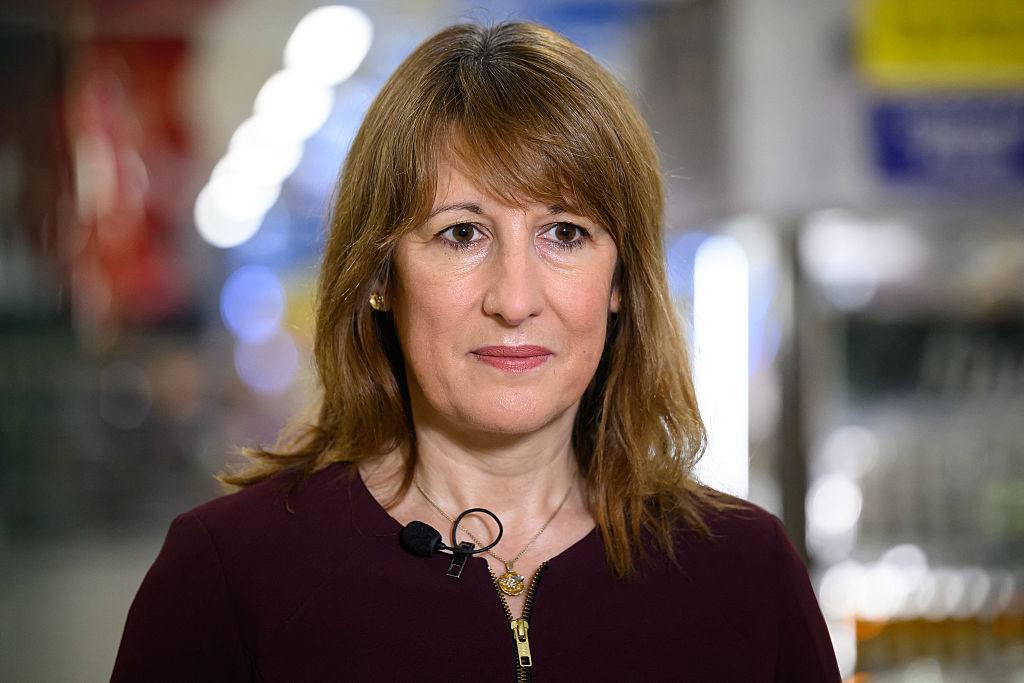How inflation shrinks your savings, and what to do about it
It’s getting harder and harder to grow your money in real terms. Alex Rankine looks at the best savings accounts currently on offer.
Get the latest financial news, insights and expert analysis from our award-winning MoneyWeek team, to help you understand what really matters when it comes to your finances.
You are now subscribed
Your newsletter sign-up was successful
Want to add more newsletters?

Twice daily
MoneyWeek
Get the latest financial news, insights and expert analysis from our award-winning MoneyWeek team, to help you understand what really matters when it comes to your finances.

Four times a week
Look After My Bills
Sign up to our free money-saving newsletter, filled with the latest news and expert advice to help you find the best tips and deals for managing your bills. Start saving today!
It’s getting more difficult to protect the value of cash savings against inflation. UK annual consumer price index (CPI) inflation spiked to 1.5% in April, with the Bank of England forecasting that it will hit 2.5% by the end of this year. Interest rates are not keeping up. The average easy-access savings account pays 0.16% , compared with 0.4% a year ago.
Banks have little incentive to raise rates. Thanks to lockdowns the average UK household has now amassed £4,353 in “excess savings” (extra money saved in addition to normal saving), according to Investec. The banks are swimming in cash. Britain’s “big four” lenders (Barclays, HSBC, Lloyds Banking Group and NatWest) collectively took in more than £200bn in new deposits last year.
App-based Atom bank currently offers the best easy-access savings rate, with its Instant Saver paying 0.5%. Savers who don’t want to manage their accounts through an app could consider the Charter Savings Bank Easy Access account, which pays 0.45%. Notice accounts, which require advance notice before money can be withdrawn, give slightly better returns. Shawbrook Bank’s 120-day notice account offers 0.72%.
MoneyWeek
Subscribe to MoneyWeek today and get your first six magazine issues absolutely FREE

Sign up to Money Morning
Don't miss the latest investment and personal finances news, market analysis, plus money-saving tips with our free twice-daily newsletter
Don't miss the latest investment and personal finances news, market analysis, plus money-saving tips with our free twice-daily newsletter
Check the small print when you sign up for a savings account, says Will Kirkman in The Daily Telegraph. Andrew Hagger of MoneyComms reports that half of the top 50 easy-access savings accounts carry “restrictive terms… more than one in five charge interest penalties to savers who make more withdrawals than their accounts allow”. Keep an eye on bonus accounts too, which pay a high rate up front only to slash it by up to 95% once the bonus period is up. The banks count on consumers’ inertia: a study by Investec found that “two-thirds of people with cash savings between 2016 and 2019 opened accounts paying short-term bonuses”, but just 42% then “moved the money once the bonuses expired”, says John Fitzsimons on yourmoney.com.
Fixed accounts perk up
Things look a bit brighter at the fixed-rate end of the market, says Rupert Jones in The Guardian. Britons have mostly put their excess savings into easy-access savings accounts. Banks now want to tempt some of that money into fixed-rate accounts, which see customers lock away cash for a set period of time (typically between one and five years).
The savings market is “starting to stabilise”, says Derin Clark for moneyfacts.co.uk. The number of products has risen for the first time since October 2020. Average rates on one year fixed-rate accounts increased to 0.44% in May, the first rise in seven months. Yet rates are still well short of the 0.68% level they hit last autumn. Still, 61 savings accounts beat inflation in the year to April, says Ali Hussain in The Sunday Times. You had to be willing to lock your money away for a long time though. RCI Bank UK’s five-year fixed-term account paid 1.9%, while Shawbrook Bank’s seven-year fixed rate bond issue returned 1.8%.
With inflation spiking and rates falling, no accounts look set to repeat the feat this year. The best longer-term rate available today is Aldermore Bank’s five-year fixed-rate account, which pays 1.45% per year. Yet it seems risky to lock in that rate when inflation is already above that level, and rising. Better to preserve your “optionality” by holding the cash in an easy access account so that if better rates become available, you can move. And if you can really afford to lock up your cash for five years-plus, perhaps consider investing it rather than putting it in the bank.
Get the latest financial news, insights and expert analysis from our award-winning MoneyWeek team, to help you understand what really matters when it comes to your finances.
Alex is an investment writer who has been contributing to MoneyWeek since 2015. He has been the magazine’s markets editor since 2019.
Alex has a passion for demystifying the often arcane world of finance for a general readership. While financial media tends to focus compulsively on the latest trend, the best opportunities can lie forgotten elsewhere.
He is especially interested in European equities – where his fluent French helps him to cover the continent’s largest bourse – and emerging markets, where his experience living in Beijing, and conversational Chinese, prove useful.
Hailing from Leeds, he studied Philosophy, Politics and Economics at the University of Oxford. He also holds a Master of Public Health from the University of Manchester.
-
 Average UK house price reaches £300,000 for first time, Halifax says
Average UK house price reaches £300,000 for first time, Halifax saysWhile the average house price has topped £300k, regional disparities still remain, Halifax finds.
-
 Barings Emerging Europe trust bounces back from Russia woes
Barings Emerging Europe trust bounces back from Russia woesBarings Emerging Europe trust has added the Middle East and Africa to its mandate, delivering a strong recovery, says Max King
-
 ISA reforms will destroy the last relic of the Thatcher era
ISA reforms will destroy the last relic of the Thatcher eraOpinion With the ISA under attack, the Labour government has now started to destroy the last relic of the Thatcher era, returning the economy to the dysfunctional 1970s
-
 Why UK stocks are set to boom
Why UK stocks are set to boomOpinion Despite Labour, there is scope for UK stocks to make more gains in the years ahead, says Max King
-
 Should ISA investors be forced to hold UK shares?
Should ISA investors be forced to hold UK shares?The UK government would like ISA investors to hold more UK stocks – but many of us are already overexposed
-
 Brits leave £31.6 billion in savings accounts paying 1% interest or less – do you need to switch?
Brits leave £31.6 billion in savings accounts paying 1% interest or less – do you need to switch?Eight million Brits hold money in savings accounts that pay 1% interest or less, meaning the value of their cash is being eroded by inflation.
-
 Hargreaves Lansdown launches first cash ISA – how does it compare?
Hargreaves Lansdown launches first cash ISA – how does it compare?Hargreaves Lansdown is offering an own brand cash ISA for the first time with their new easy-access account. How does the interest rate compare to other products?
-
 ‘My NS&I one-year British Savings Bond is maturing – what should I do with my savings?
‘My NS&I one-year British Savings Bond is maturing – what should I do with my savings?Thousands of savers will see their fixed-rate savings accounts mature next month. We consider whether you should stick with NS&I or move to a competitor
-
 Best inflation-beating savings accounts to make your money work hard
Best inflation-beating savings accounts to make your money work hardInflation rose in December, but is forecast to fall in 2026. We list some of the top savings accounts in terms of rates, where your money will grow in real terms.
-
 Parents face £1,000 'nanny tax' – how to afford it
Parents face £1,000 'nanny tax' – how to afford itHiring a nanny is about to become even more of an expensive hassle for families, especially those in London. Here's how to cut costs